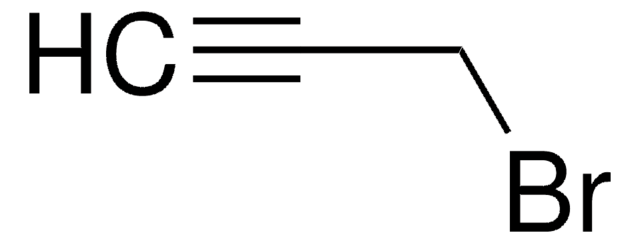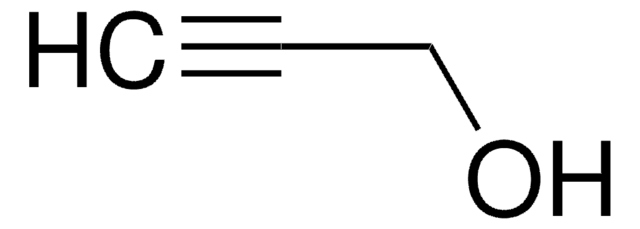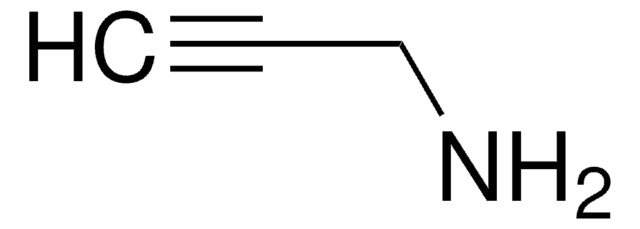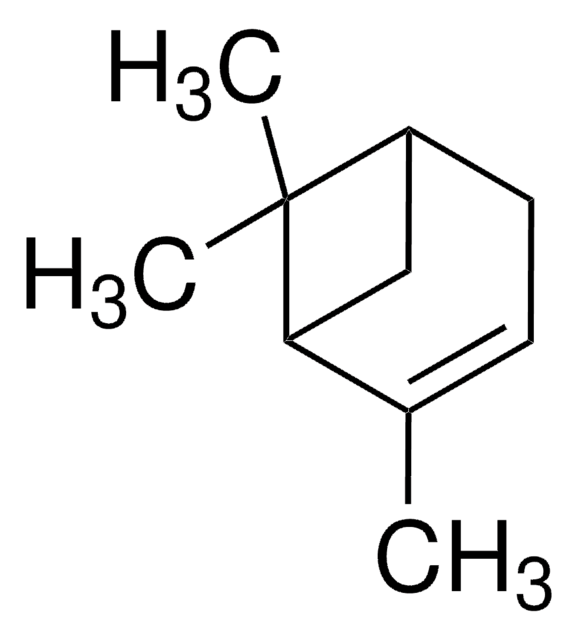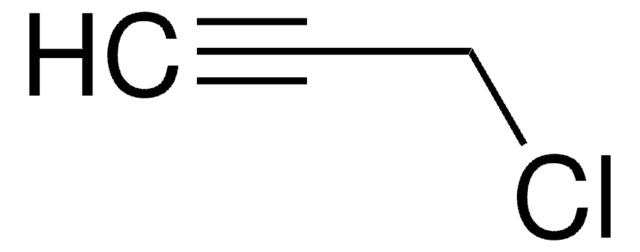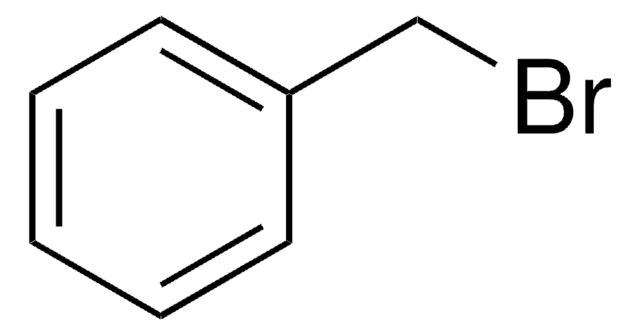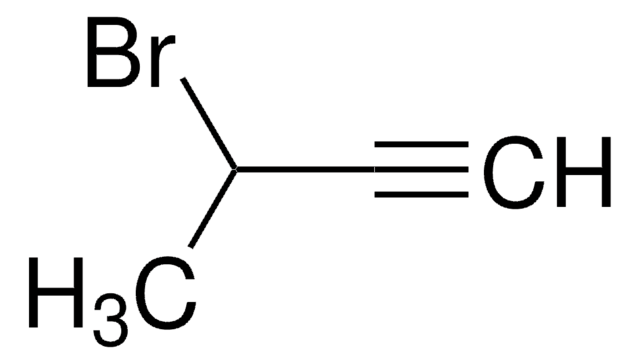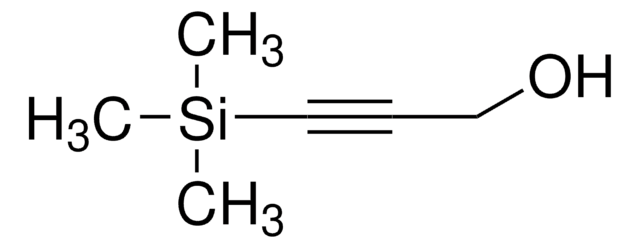P51001
Propargyl bromide solution
80 wt. % in toluene, contains 0.3% magnesium oxide as stabilizer
Synonym(s):
3-Bromo-1-propyne
About This Item
Recommended Products
contains
0.3% magnesium oxide as stabilizer
Quality Level
concentration
80 wt. % in toluene
refractive index
n20/D 1.494
bp
88-90 °C
density
1.335 g/mL at 25 °C
storage temp.
2-8°C
SMILES string
BrCC#C
InChI
1S/C3H3Br/c1-2-3-4/h1H,3H2
InChI key
YORCIIVHUBAYBQ-UHFFFAOYSA-N
Looking for similar products? Visit Product Comparison Guide
Related Categories
General description
Application
Employed in the propargylation of spiro ketones, allylic alcohols, and enone complexes.
Signal Word
Danger
Hazard Statements
Precautionary Statements
Hazard Classifications
Acute Tox. 3 Oral - Asp. Tox. 1 - Eye Dam. 1 - Flam. Liq. 2 - Repr. 2 - Skin Corr. 1B - STOT RE 2 - STOT SE 3
Target Organs
Central nervous system, Respiratory system
Storage Class Code
3 - Flammable liquids
WGK
WGK 3
Flash Point(F)
64.4 °F - closed cup
Flash Point(C)
18 °C - closed cup
Personal Protective Equipment
Choose from one of the most recent versions:
Already Own This Product?
Find documentation for the products that you have recently purchased in the Document Library.
Customers Also Viewed
Our team of scientists has experience in all areas of research including Life Science, Material Science, Chemical Synthesis, Chromatography, Analytical and many others.
Contact Technical Service